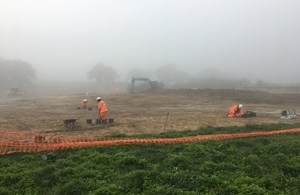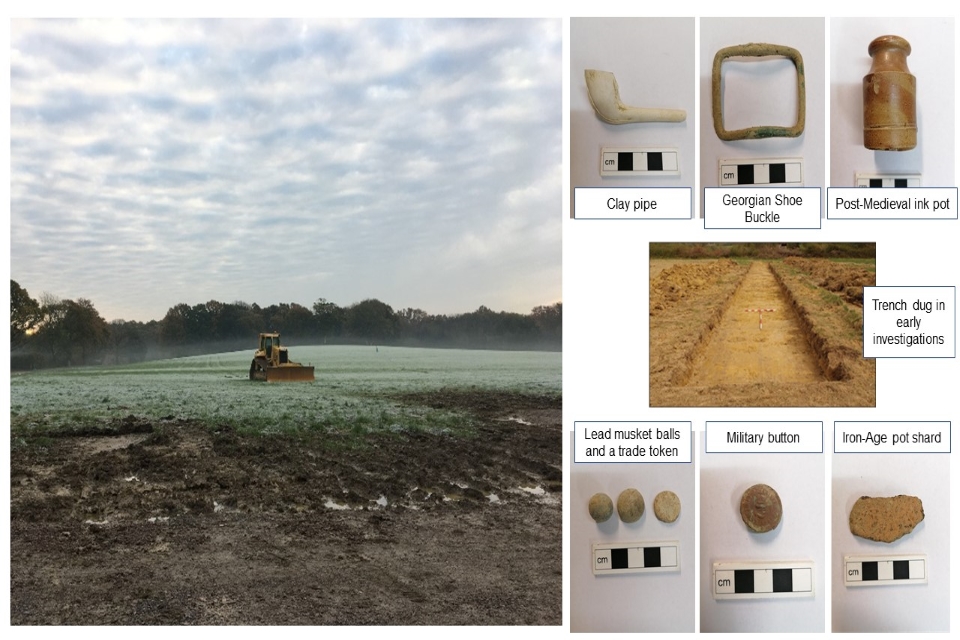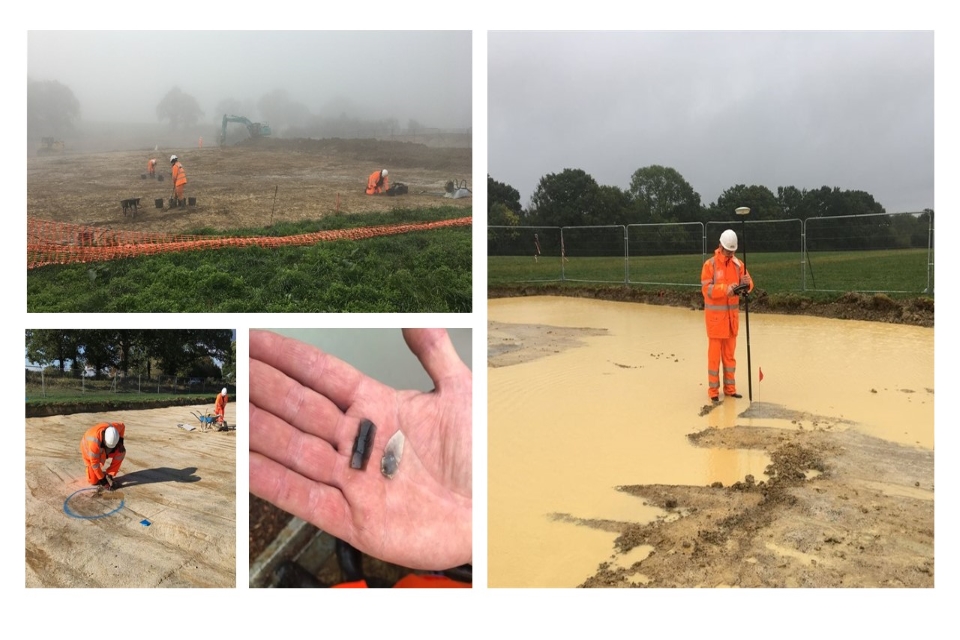The biggest shake-up of UK pensions for decades was confirmed today (Thursday 11 February 2021) as the Pension Schemes Bill received Royal Assent.

The Bill, now an Act, will bolster protections for savers and further the government’s green agenda by supporting progress towards net zero.
Minister for Pensions, Guy Opperman, said:
This is a historic day for UK pensions, and I’m thrilled that after more than 12 months, amidst all the challenges we’ve faced, the Bill has now received Royal Assent.
This Act makes our pensions safer, better and greener, as we look to build back better from the pandemic. Its passage will reassure savers that they can, and will, have a retirement they deserve.
The Act will strengthen protections for pension
savers by extending the powers of the Pensions Regulator, introducing the power to issue civil penalties of up to £1 million, alongside three new criminal offences.A tough new sentence has been created - with a maximum penalty of seven years in prison - for bosses who run pension schemes into the ground, or plunder pots to line their own pockets. This will deter employers from making reckless decisions with their defined benefit schemes and strengthen the regulators’ powers to take efficient and timely actions to protect members’ hard-earned savings.
The introduction of pensions dashboards will hail a digital revolution for savers, creating one single platform to more easily access and review pension pots. Savers will be able to see how much they can expect each month in retirement, and find out how they can improve their retirement prospects.
The Act ensures pensions play their part in our transition to a net zero future through climate risk reporting, and changes to requirements around pension scheme funding to improve financial sustainability.
The Act also legislates for the creation of a new style of pension scheme - Collective Defined Contributions (CDCs). Developed in cooperation with trade unions, CDCs have the potential to increase returns for millions, whilst being more sustainable for both workers and employers.
Additional information:
- Provisions for commencement of all the measures are contained in section 131 of the Act. These timings vary depending on the measure.
Phase 2a Act to bring HS2 to the north

- High Speed 2 (HS2) Phase 2a Bill given Royal Assent
- act means works can start to build new rail line between Crewe and Birmingham
- law signed exactly 1 year after government gives green light to deliver HS2
- Royal Assent comes alongside launch of West Midlands Combined Authority’s HS2 Growth Strategy
The HS2 Phase 2a: High Speed Rail (West Midlands to Crewe) Bill has been given Royal Assent today (11 February 2021), cementing in law the government’s commitment to bring the new high-speed railway to the north.
The act of Parliament was passed exactly 1 year after ministers gave the project the green light and will allow HS2 Ltd to begin work to construct the next phase of the new high-speed railway between Crewe and Birmingham, creating thousands of jobs.
Construction of the first stage of the project between the West Midlands and London is already underway and now supporting more than 15,000 jobs and 500 apprenticeships.
Transport Secretary Grant Shapps said:
Whatever your view of this project, HS2 is now a reality – heading north, creating jobs and building a brighter future for our country. This vital project is at the heart of the government’s commitments to build back better from the pandemic, tackle the north-south divide and drive growth across the country.
The signing of the Phase 2a Bill into law is a historic milestone for this ambitious project, which is already creating and supporting thousands of jobs across the UK. I look forward to seeing spades in the ground to get this section built and deliver the benefits of high-speed rail to the north as swiftly as possible.
Now that the Phase 2a Bill has been signed into law, HS2 Ltd will be able to start environmental works along the route with construction expected to begin on this section by 2024.
Construction of Phase 2a is expected to support around 5,000 jobs, with many more in the supply chain. In addition, the railway will support 140 permanent jobs at its maintenance base near Stone in Staffordshire.
It comes after HS2 Ltd marked National Apprenticeship Week this week by announcing that it will be directly recruiting for 30 new apprentices to join the company in September 2021.
The company has also launched a new online jobs board, which illustrates the broad range of opportunities currently available on the project. HS2 Ltd’s construction partners and station contractors are currently recruiting for over 100 live vacancies, with jobs based at various office and satellite locations along the Birmingham to London route.
Today’s announcement comes alongside the launch of the West Midlands Combined Authority’s HS2 Growth Strategy, which outlines how the new railway could generate 175,000 jobs and £20 billion investment in the region.
Andy Street, the Mayor of the West Midlands, said:
HS2 was always going to be a game changer for the West Midlands, but the jobs and economy aspect of the scheme has taken on even more significance in light of the pandemic.
HS2 will be a key anchor of the region’s recovery plans, with our latest research suggesting the knock-on effect of HS2 could eventually generate 175,000 jobs and more than £20 billion of investment.
These are extraordinary numbers, which shows just how critical it was to win the argument for HS2. With thousands in the West Midlands already employed and working on the project, HS2 is making a critical difference to people’s livelihoods right now.
Councillor Craig Browne, deputy leader of Cheshire East Council, said:
This is a hugely important milestone in bringing high-speed rail to Crewe. HS2 is a strategically important project and will drive increased business confidence to invest in Crewe – creating opportunities to not only enhance the town, but also the wider borough, through the jobs, services and improved opportunities it can provide.
We are committed to maximising the significant benefits the scheme will bring and it is more important than ever as we support our local economy to bounce back from the coronavirus (COVID-19) pandemic.
Working with our strategic partners, we are continuing to push forward with multiple projects to transform Crewe and the wider area, and ensure it is ready for HS2’s arrival, including our proposals for Crewe Hub station.
Once built, HS2 will become the spine of the UK’s rail network, better connecting the country’s towns and cities and boosting capacity to provide better journeys for passengers.
Early this year, the government will publish its integrated rail plan, which will outline how HS2 can work with existing rail plans and Northern Powerhouse Rail to deliver the benefits of HS2 to the East Midlands, Yorkshire and beyond
New Bovine TB Partnership launched
Biosecurity Minister Lord Gardiner attended the first Bovine TB Paternship meeting today

The Government’s newly formed Bovine TB Partnership held its inaugural meeting today (11 February), attended by Biosecurity Minister Lord Gardiner.
As part of the Government’s response to Professor Sir Charles Godfray’s review of the Government’s bTB Strategy, the Government has worked with industry and stakeholders to co-design the new bTB Partnership to encourage shared ownership, coordination and decision-making surrounding England’s 25 year bTB eradication strategy.
The group will be a driving force helping to progress the Government’s aim of eradicating the disease and absorbs the advisory function formerly performed by the bTB Eradication Advisory Group for England (TBEAG).
The Partnership is made up of members who have extensive experience and expertise in the farming industry, veterinary science, conservation and academia.
Biosecurity Minister Lord Gardiner said:
The wealth of experience and expertise brought to the table by this new Partnership will be invaluable in helping to achieve the Government’s ambition to eradicate bTB from this country by 2038.
We have made extensive progress in tackling this disease to date and I look forward to working closely with the group to build on this progress, ensuring that this disease is eradicated as quickly and effectively as possible.
Bovine TB Partnership Chair and experienced Norfolk farmer John Cross said:
We have 17 years of the 25 year TB Strategy left, the timeline is ambitious as it should be, and I am really anticipating that the high calibre of this new Partnership will give TB eradication a real boost.
We have a large, broadly based group here that represents an amazing collective intellect to pitch against this disease, with a positive forward looking , science based approach. If we all work in true partnership this pathogen will be defeated.
The Partnership will:
- Contribute to setting strategic direction of the bTB disease eradication programme, helping to identify priorities, and address specific opportunities, risks and issues, as an integral part of the bTB Programme’s governance.
- Help set standards, monitor progress, and identify where new approaches might be needed.
- Co-design potential new policies and communications.
- Help to identify new evidence sources/requirements and ideas and captures wider views to inform discussion as needed.
- Engage widely to advocate agreed bTB policy to a range of stakeholders.
- Encourage formation of and work closely with local groups and create opportunities for stakeholders/local groups to work together.
- Engage with developments in wider domestic agriculture policy, helping to build understanding of the potential implications for future disease control and helping to influence the design of future policy to benefit the goals of the bTB Strategy.
- Provide expert advice to government on policy matters and implementation.
A work plan will be devised by the Partnership to establish the priorities for the coming year.
The full terms of reference and members of the Partnership can be found here.
The Government is currently consulting on the next phase of its strategy to eradicate bTB in England by 2038. This follows the Government’s response to the Godfray Review which set out plans to phase out intensive culling in the next few years, and outlined the need to continue tackling infection in both cattle and wildlife. It also set out priorities that include a transition to badger vaccination, accelerating work to develop a deployable cattle vaccination and improving diagnostic testing. The consultation can be accessed here.
PCT Group Sales wins renewable energy contract with UKEF support
Bond support scheme underpins first offshore wind contract for Glasgow manufacturer.

| About the transaction: PCT Group Sales | |
|---|---|
| Region | Glasgow |
| Sector | Manufacturing, renewables |
| UKEF support | Bond support scheme |
PCT Group Sales, a Glasgow-based global manufacturer for the energy sector, secured a £3 million contract to supply cranes to build wind turbines for the new Neart na Gaoithe (NnG) offshore wind farm in Scotland with help from UKEF’s bond support scheme.
PCT won a global tender to supply 54 davit cranes to produce wind turbines that will be installed at the 450 megawatt (MW) offshore wind farm off the Fife coast – PCT’s first renewable energy contract.
PCT is an experienced exporter specialising in the production of lifting devices, including cranes, winches and hoists, with 90% of its revenue coming from overseas business.
International engineering company Saipem are the lead contractor for the installation of the wind turbine’s foundations and deck platforms and will ship the cranes, produced by PCT, to Indonesia to complete construction.
The terms of PCT’s contract with Saipem meant it was required to supply performance and advance payment bonds upfront, which would have placed a strain on the company’s resources. UKEF backed the deal and provided PCT’s bank with a guarantee for 80% of the bond, allowing the company to retain working capital for its business operations and fulfil the contract.
Brian Lemond, PCT Managing Director said:
Without UKEF’s support we would have been unable to put the bonding in place, at this time, and couldn’t fulfil the contract. I look forward to working with them as we continue to secure contracts in the renewable energy sector.
Carol Harvey, UKEF’s Export Finance Manager, said:
The success of PCT demonstrates UKEF’s ability to support a range of contracts across a wide variety of sectors. Our bond support scheme continues to play a crucial role in ensuring UK companies can fulfil their export contracts.
Get the Exporters’ Edge
Putting the right finance and insurance in place can give you the exporting edge, helping you to win contracts, fulfil orders and get paid.
Archaeology at the Northern Arc

The Burgess Hill area is rich in archaeological finds, with excavations in the local area uncovering flint tools suggesting local activity dating right back to the Stone Age. We were keen to uncover the secrets of the site to ensure that our development is respectful of the heritage of the area.
Archaeology is a resource fundamental to understanding our common history. It provides an excellent opportunity to add value to a development through place-making, community engagement and the possible growth of local heritage tourism. All findings from the investigations at Burgess Hill will be entrusted to local museums adding to the understanding of the region’s rich, diverse history.
Archaeology South East conducted site investigations in 2020 and 2021, starting with trenches dug along the line of one of the new roads, to investigate whether any archaeological remains that survived would be adversely affected by any construction work. Layers of topsoil were stripped back to reveal underlying deposits and the area of investigation was later broadened beyond the direct route of the new road.
The investigations revealed interesting findings that showed evidence of continual historical use. There was however nothing of scale that would adversely affect the programme of works on the site.
The most common discoveries were cooking pits located seemingly randomly across the landscape. The presence of a small number of worked flints suggests these may be prehistoric in date. Soil samples are being radiocarbon dated to provide more accurate timescales of the flints. Other interesting finds ranged from a broken Neolithic flint arrowhead to Victorian military buttons, proof that this area of Sussex has been a hub of human activity for thousands of years.
Once post-excavation reporting is completed in May 2021 - all finds, together with the rest of the archive will be offered to the Burgess Hill Museum. The archaeological report will be available in full on the Mid Sussex District Council Planning Portal and a summary of the findings will be included in Sussex Archaeological Collections, the scientific journal for archaeological fieldwork in Sussex.
Interested in finding out more about our work at Burgess Hill? Find out how we’re protecting and enhancing biodiversity at the Northern Arc here.
Image Credit: Simon Stevens and Archaeology South East.



No comments:
Post a Comment